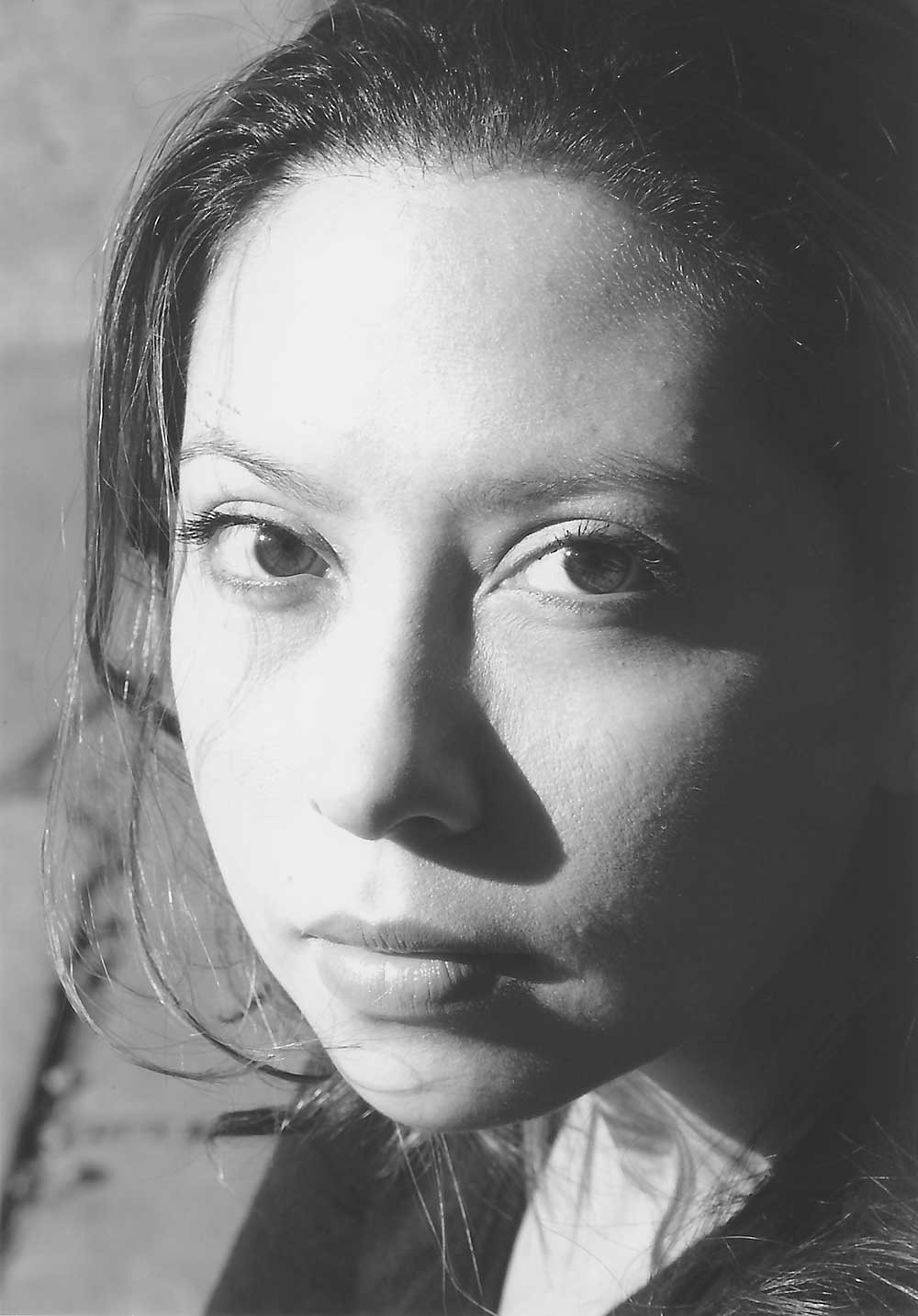
[one love affair]*
Jenny Boully
ISBN 0977901904
Fiction/Poetry/Lyric Essay
5″x7″, 76 pp, pbk, 2006
Voted Best Book-Length Poem at Coldfront Magazine
[one love affair]* meditates on mud daubers, Duras, and the deaths of mentally ill and drug-addicted lovers, blurring fiction, essay, and memoir in an extended prose poem that is as much a study of how we read as it is a treatise on the language of love affairs: a language of hidden messages, coded words, cryptic gestures, and suspicion.

[one love affair]*
Jenny Boully
ISBN 0977901904
Fiction/Poetry/Lyric Essay
5″x7″, 76 pp, pbk, 2006
Voted Best Book-Length Poem at Coldfront Magazine
[one love affair]* meditates on mud daubers, Duras, and the deaths of mentally ill and drug-addicted lovers, blurring fiction, essay, and memoir in an extended prose poem that is as much a study of how we read as it is a treatise on the language of love affairs: a language of hidden messages, coded words, cryptic gestures, and suspicion.
As with Jenny Boully’s debut book The Body (2002), [one love affair]* is full of gaps and fissures and “seduces its reader by drawing unexpected but felicitous linkages between disparate citations from the history of literature,” a work that is “filled with the exegetical projection of our own imagination” (Christian Bok, Maisonneuve). Told through fragments that accrete through uncertain meanings, romanticized memories, and fleeting moments rather than clear narrative or linear time, [one love affair]* explores the spaces between too much and barely enough, fecundity and decay, the sublime and the disgusting, wholeness and emptiness, love and loneliness in a world where life can be interpreted as a series of love affairs that are “unwilling to complete.”
A genre-bending back-pocket book. . . . Gritty and intellectual . . . addictive and soothing . . . fitting for just about anyone’s bookshelf. . . . You’re reading the book for second, third, and fourth time. (John Deming, Coldfront) Boully’s sentences are a joy in and of themselves; they move lushly towards the period, transversing commas, semicolons, and colons to accrue and sediment in our own minds. (Rattle) Boully’s fluid, lyrical writing makes what could be a difficult, intimidating read instead a delightful one. . . . Playful engagement with narrative levels of reality (poems within poems, stories within stories). I highly recommend it, especially if you’re looking for a way into the “trans-genre” of prose poetry. (Elisa Gabbert, Open Letters Monthly) Her fresh style challenges the ways in which we construct narratives and read texts . . . and ultimately leaves us wanting more, more, always more Boully. (Catherine Paquette, Matrix) Boully has not only written the speaker’s one love affair, she has written our collective love affair. (Michael Rerick, CutBank Poetry) Boully’s language is accretive and lyrical. It is clear, feels clean in the mouth and sweet in the ear. . . . One begins to feel there another form embedded within the prose, though not a poetic form as much as the formed outline of a lover’s body, a book one has loved, one lover in a line of lovers, lying in the same bed as the former others. (Galatea Resurrects) Aside from the value of her incidental observations and asides, which are as sharp and well-made here as they are in The Body, the greatest virtue of [one love affair]* is Boully’s willingness to admit the personal and the narrative in such a way that doesn’t reinforce those very errors that make heartbreak in actual (if there is such a thing) love affairs inevitable. (Teresa Carmody, The Constant Critic)
A genre-bending back-pocket book. . . . Gritty and intellectual . . . addictive and soothing . . . fitting for just about anyone’s bookshelf. . . . You’re reading the book for second, third, and fourth time. (John Deming, Coldfront) Boully’s sentences are a joy in and of themselves; they move lushly towards the period, transversing commas, semicolons, and colons to accrue and sediment in our own minds. (Rattle) Boully’s fluid, lyrical writing makes what could be a difficult, intimidating read instead a delightful one. . . . Playful engagement with narrative levels of reality (poems within poems, stories within stories). I highly recommend it, especially if you’re looking for a way into the “trans-genre” of prose poetry. (Elisa Gabbert, Open Letters Monthly) Her fresh style challenges the ways in which we construct narratives and read texts . . . and ultimately leaves us wanting more, more, always more Boully. (Catherine Paquette, Matrix) Boully has not only written the speaker’s one love affair, she has written our collective love affair. (Michael Rerick, CutBank Poetry) Boully’s language is accretive and lyrical. It is clear, feels clean in the mouth and sweet in the ear. . . . One begins to feel there another form embedded within the prose, though not a poetic form as much as the formed outline of a lover’s body, a book one has loved, one lover in a line of lovers, lying in the same bed as the former others. (Galatea Resurrects) Aside from the value of her incidental observations and asides, which are as sharp and well-made here as they are in The Body, the greatest virtue of [one love affair]* is Boully’s willingness to admit the personal and the narrative in such a way that doesn’t reinforce those very errors that make heartbreak in actual (if there is such a thing) love affairs inevitable. (Teresa Carmody, The Constant Critic)
About the Author
Jenny Boully is the author of [one love affair]* and not merely because of the unknown that was stalking toward them, from Tarpaulin Sky Press, as well as The Book of Beginnings and Endings (Sarabande, 2007) and The Body: An Essay (Essay Press, 2007 and Slope Editions, 2002), and the chapbook Moveable Types (Noemi Press, 2007). Her work has been anthologized in The Next American Essay, The Best American Poetry, Language for a New Century, and Great American Prose Poems. Read more at our author page for Jenny Boully.


About the Author
Jenny Boully is the author of [one love affair]* and not merely because of the unknown that was stalking toward them, from Tarpaulin Sky Press, as well as The Book of Beginnings and Endings (Sarabande, 2007) and The Body: An Essay (Essay Press, 2007 and Slope Editions, 2002), and the chapbook Moveable Types (Noemi Press, 2007). Her work has been anthologized in The Next American Essay, The Best American Poetry, Language for a New Century, and Great American Prose Poems. Read more at our author page for Jenny Boully.